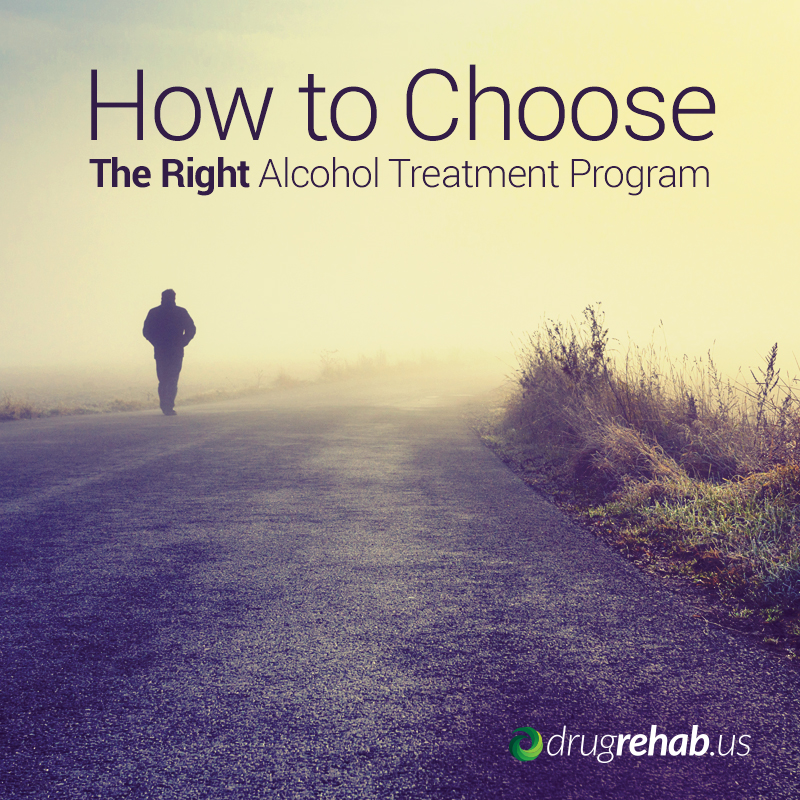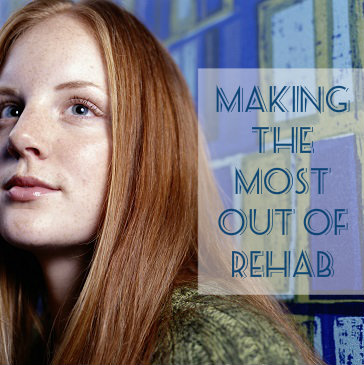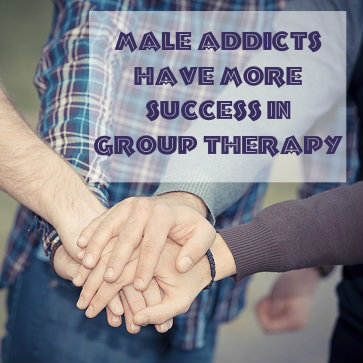01 Dec 2014
Don’t Skimp On Your Time In Rehab
Getting treatment for drug addiction is the only way to heal from this terrible disease. If you or a loved one is struggling with drug abuse, treatment guided by caring professionals is essential.
 It is also important to understand that the disease of addiction is chronic. Like other chronic diseases, high blood pressure and diabetes for instance, addiction needs continuous treatment over a lifetime. You can never be cured of your addiction, but you can learn to manage it.
It is also important to understand that the disease of addiction is chronic. Like other chronic diseases, high blood pressure and diabetes for instance, addiction needs continuous treatment over a lifetime. You can never be cured of your addiction, but you can learn to manage it.
If you are thinking of going to rehab, know that the time you spend there will set you on your path to lifelong sobriety. It is important to spend enough time during this initial phase of treatment learning how to live a sober life.
Whatever you do, don’t skimp on your time spent in a good and caring rehab facility. Research shows that the best outcomes result from at least 90 days spent in residential or intensive outpatient care.
Why You Should Consider A Long Stint In Rehab
Here are several reasons you should consider a long stint in a good rehab in order to heal:
- Get past detox – Detox, that time when drugs leave your system and you get beyond withdrawal, can last longer than you think. Detox is important, but by the time it’s done, you may find you have limited time to work on actual treatment if your stay in rehab is only 30 days. Going through detox is hard, but it isn’t the part of rehab that helps you learn to be sober.
- Learn new habits –Your addiction is a habit. Your brain has learned a habit of regular drug use. In order to change those habits and learn new ones, you need time. You are going to rehab to learn how to have an entirely new lifestyle. You must take your time on this or your new healthy habits will not take root.
- Heal your brain – Your drug use has caused actual changes in your brain. It is possible to reverse those changes, but it takes time. Research has shown that in brain scans of patients receiving treatment, positive changes are still occurring up to three months after starting treatment.
- Work on relationships – The main goal of rehab is to heal and to overcome your addiction, but there are many other things to work on if you have the time. Your addiction has probably wrecked several of your relationships, for instance. If you spend enough time in rehab, you can work on repairing those.
- Treat mental disorders – Many people who struggle with addiction are also battling mental illness, whether they know it or not. Spending enough time in rehab will give your treatment professionals a chance to diagnose and treat any co-occurring disorders. When you recognize and treat mental illness you have a better chance at being successful at sobriety and living a more enjoyable life.
- Step down treatment – If you can afford the time to do so, your rehab should be followed by a step down in care. This means going from residential rehab to a sober living house or to intensive outpatient care. Doing so allows you to begin to practice your new habits and skills while still having the support and treatment of caring professionals. Going cold turkey from rehab to real life can be a shock and may lead to relapse.
Long-Term Rehab For Life-Long Sobriety
Rehab is an important step toward becoming sober and you should not skimp on it. If you are able to take the time away from work and family, spend as much time in rehab and step down treatments as necessary to help you be successful in your new, sober lifestyle.
Discover How To Choose The Right Drug Rehab For Yourself Or Your Loved One!
When you are guiding a loved one through the process of getting help for alcohol abuse, it can be easy to feel overwhelmed. You want the best for the person you care about, but there are so many choices. How do you know which facility and which type of program is right and will be most effective? The first step is to understand what the options are. Then you can make an informed and personal decision about seeking care.
Alcohol Treatment Options – How To Choose The Right Alcohol Treatment Program
When it comes to care for alcoholism and alcohol abuse, there is no one-size-fits-all option. Addiction care is personal and most effective when it is individualized to meet the particular needs of each patient.
Your loved one needs the type of care that will work best for him. These are some of the options:
 Outpatient counseling – Counseling is useful for anyone who abuses alcohol. On an outpatient basis, it allows the patient to stay at home and to continue going to work or school. This may not be the best option for someone who is a serious alcoholic. Counseling may include group therapy, family therapy or one-on-one counseling.
Outpatient counseling – Counseling is useful for anyone who abuses alcohol. On an outpatient basis, it allows the patient to stay at home and to continue going to work or school. This may not be the best option for someone who is a serious alcoholic. Counseling may include group therapy, family therapy or one-on-one counseling.
- Intensive outpatient program – An intensive program can allow the patient to stay at home, but still receive intense care. This requires a big time commitment, but is good for someone who needs extra support and feels most comfortable staying at home with family.
- Inpatient or residential care – Residential care means staying in a facility for a month or more. This allows the patient to receive intensive, daily care and 24-hour monitoring.
- Sober living – A sober living facility is similar to residential treatment, and may include intensive therapy and treatment. It is often used as a facility for someone who has completed residential care, but is worried about going home. It involves living in a house with other alcoholics in recovery and there are strong social and support components.
- Support group – A support group is a meeting of people trying to cut back on drinking or stay sober after going through treatment. Many are anonymous and follow a 12-step philosophy. These groups can be used as a stand-alone treatment or as ongoing treatment for alcoholics already in recovery.
Making The Right Treatment Choice
Now that you know more about the options for alcohol addiction and abuse treatment programs you can help your loved one make a good decision. Think about his needs and his personality and which type of program would suit him best. If he has a strong support system at home, maybe outpatient care would be best. If he can’t be trusted to not keep drinking, a residential facility might help. If he is not yet an alcoholic, but is engaging in dangerous drinking habits, individual therapy or attendance at a support group may be enough to help him make some important life changes.
As you pick out a facility together, make sure you keep a couple of other factors in mind. Look for a program that has good credentials and a well-trained and experienced staff. You should be able to get positive references from any reputable program. Also look for a facility or therapist that will tailor a program to meet the individual needs of your loved one. A rigid plan used for everyone is not going to be effective. If you keep these things in mind and are careful in your selection process, you should be able to find a treatment program that will help your loved one get sober and learn to stay alcohol-free.
Christian Or Secular Drug Rehab – Which Is Right For You? – Let Us Help You Make This Important Decision
30 Sep 2014
Does Drug Rehab Work?
Drug rehab success statistics are difficult to measure. One reason is that addiction is a chronic disease. With any chronic disease you can expect to relapse and to need some type of treatment over an entire lifetime. Addiction is not like an acute sickness that can be treated once and cured. If you struggle with a drug addiction, rehab will help you, but you have to recognize that it does not represent a cure for your illness. What rehab can do is guide you onto a path of lifelong sobriety that you will work on for the rest of your life.
Rehab Information And FAQs
Learn more about rehab information and rehab FAQs.
What Do They Do In Rehab?
 Rehab is short for rehabilitation and it refers to a program of treatment that will help you learn how to get sober and how to stay sober once you leave treatment. Rehab includes detoxifying the body and working through the inevitable withdrawal symptoms. Once you have completed detox you can expect to progress through a treatment plan devised by you and experienced addiction and health professionals.
Rehab is short for rehabilitation and it refers to a program of treatment that will help you learn how to get sober and how to stay sober once you leave treatment. Rehab includes detoxifying the body and working through the inevitable withdrawal symptoms. Once you have completed detox you can expect to progress through a treatment plan devised by you and experienced addiction and health professionals.
Treatment in rehab includes individual therapy, family therapy, support groups and group therapy as well as supplemental activities such as art therapy, exercise, meditation and other holistic practices. You may also be treated with medication while in rehab. You can also expect to learn about living your new sober life outside of rehab and coping mechanisms to help you resist urges to relapse.
What Makes Rehab Successful?
Although it’s hard to say that rehab works for everyone, it does help most addicts get clean. The most successful drug rehab programs are those that create individualized treatment plans. Everyone is different and one plan will not work for everyone. Rehab also works when there are experienced, trained and committed professionals working to help you. Finally, successful drug rehab includes a commitment and hard work from you, the client. When you put in the time and the effort to get well again, you can expect that rehab will work for you.
Life After Rehab
Because addiction is a chronic disease, you have to remember that rehab is not the end of your treatment. People who think that rehab doesn’t work are often misinformed and expect to be cured by the end of their stay. A good rehab program will teach you how to be successful after you leave rehab. This often means continuing with some type of therapy and possibly attending support group meetings and working with a sponsor.
As with any chronic illness, like diabetes or high blood pressure, your addiction may relapse after rehab. That doesn’t mean that rehab didn’t work. It simply means that you need continuing care and treatment. Don’t consider a relapse a defeat. It’s just a wake-up call letting you know that you need to get back to therapy or some other type of treatment. Keep working hard toward sobriety and you will be able to live with and manage your disease.
Get The Know How On Additional, Important Drug Rehab FAQs
24 Sep 2014
How To Come Out As A Recovering Alcoholic
Being an alcoholic means living with a lifelong disease. If you have gone through rehab or any other form of treatment and are now in recovery you have taken huge steps to get back control of your life and to treat your disease. Remember that addiction is chronic and that you need to treat it for the rest of your life. This means that it will always be a health concern for you. No matter how long you have been sober, a relapse is always possible.
With something so big going on in your life, it doesn’t make sense to keep it a secret from your friends and family members. So how do you come out and tell people? It will be scary at first, but know that your loved ones will support you.
Steps To Come Out And Tell People You’re A Recovering Alcoholic
Start slowly and take this advice:
 Start With A Support Group – The people who will be most sympathetic to your alcoholism are those who also struggle with the disease of addiction. Joining a support group is a great tool for maintaining your sobriety and a useful way to practice talking about your addiction and recovery. The members of your support group will be supportive. No one there will reject you or ridicule you. Tell your story here and you will start to feel more comfortable opening up to others.
Start With A Support Group – The people who will be most sympathetic to your alcoholism are those who also struggle with the disease of addiction. Joining a support group is a great tool for maintaining your sobriety and a useful way to practice talking about your addiction and recovery. The members of your support group will be supportive. No one there will reject you or ridicule you. Tell your story here and you will start to feel more comfortable opening up to others.
- Tell Your Sober Loved Ones Next – The sad fact is that the friends with whom you used to drink may not support your new sobriety. They may take your admission of alcoholism as an accusation that they too have a problem. This comes from a defensive standpoint and denial on their parts, but for you it can feel hurtful and devastating. You can confront these friends eventually, but start with your sober loved ones. They are more likely to be loving and supportive of the changes you’ve made in your life.
- Arm Yourself With Information – When you talk to your loved ones about being in recovery, be prepared to educate them about the disease of alcoholism. Most people still have no idea what addiction really is, that it is an illness. Talk to them about your personal experiences and why you felt you had to stop drinking, but also about alcoholism in general. Help them to understand the disease and they will be better able to support you.
- Tell Your Friends And Family What You Need – It is also important that you provide your loved ones with details about what you need from them. It may be confusing for them. If you need them not to drink around you, make that clear. If you can’t meet up in a bar, make sure they know that. They will want to help, but will need to know how.
- Be Patient And Give Your Loved Ones Space – In spite of your best efforts, some of your loved ones may not take the news well. Be prepared to give them space if needed. The bad reaction will probably be due to shock. Provide them with resources about alcoholism and give them time and space. They will come back to you when they’re ready.
Telling people that you are an alcoholic in recovery is never easy. It is important, though, because your disease is a part of who you are. When you take the time to educate the ones you love and tell them what you need for support, you may be surprised at just how much support you receive.
If You Need Help With Your Addiction Recovery – Call Us Now – We Are Here Just For You!
28 Aug 2014
How To Make The Most Out Of Rehab
Overcoming addiction is one of the biggest challenges that many people face. With dedication, support and the treatment administered by caring professionals in a rehab facility, all addicts have the ability to get clean and to learn to stay sober over the long term. Going through a successful drug rehab program takes effort on the part of the caregivers and the addict. If you are considering getting into rehab to treat your addiction, make the most of it in order to be successful.
 What Happens In Drug Rehab?
What Happens In Drug Rehab?
Start by learning what will happen when you enter a rehab facility. By being prepared ahead of time, you will give yourself a head start in the process of getting well. As you search for a facility for your care, hopefully with the support of a loved one, ask questions about what will happen when you enter treatment. Most likely you can expect to go through a detox and then get one-on-one counseling as well as participate in group therapy and support sessions. Beyond these basics, different facilities may use different activities and will operate based on different philosophies. Find out what those are before you start your treatment program.
Maintain A Positive Attitude While In Rehab
Going through rehab will be hard work. At times it will feel like you are failing, but when you keep your attitude positive, you will be more likely to succeed. Enter the process understanding that there will be ups and downs, but prepared to work hard for your sobriety and your healing. Remember that the first part, your detox, will be the hardest part, but that it will get easier from there. What happens during detox is that the drugs and alcohol leave your body and you feel sick as a result. When the withdrawal symptoms fade, you will be feeling better and ready to make it through your treatment.
Keep Up A Support System After Leaving Rehab
Having a support system is one of the best ways to ensure your success at getting and staying sober. No one can do this alone, and, once you leave treatment, your professional caregivers will no longer be there for you every day. Make sure you have at least one or two friends or family members willing to support you through this process. Involve these people as much as you can during rehab. If they are allowed to visit or participate, encourage them to do so. Words of encouragement for someone in rehab can make a world of difference, as can the support of loved ones afterward.
Drug rehab success rates statistics tell us that most addicts will relapse at some point after treatment. This does not mean that rehab was a failure, but it may mean that you need a tune up. Sometimes, making the most of the process means going back to try again and to get more help. Just remember to stay positive, to keep your support system around you and to not get discouraged by a small setback.
Learn More About Repairing Broken Relationships While In Rehab – Is Rehab The Time To Fix Relationships Or Just Yourself?
Call Us Now To Learn More About Drug Rehab – We Are Here For You…You Are Worth It.
14 Aug 2014
Who Is Going To Rehab?
A successful drug rehab program is one that reaches out to all kinds of people who need help and that provides those people with the skills they need to stay sober outside of the program. There are plenty of wonderful rehab facilities operating today, but who is getting help? Statistics can give us a lot of information about who is going to rehab and getting much-needed treatment.
What Can Be Treated In Rehab?
 What happens in rehab depends on the type of addiction being treated, the age and experience of the patient and many other individualized factors. Information from surveys and research tell us that the majority of patients seeking help in rehab facilities are struggling with alcoholism or problem drinking. Nearly one-quarter of all admissions to rehab are people with an alcohol problem only.
What happens in rehab depends on the type of addiction being treated, the age and experience of the patient and many other individualized factors. Information from surveys and research tell us that the majority of patients seeking help in rehab facilities are struggling with alcoholism or problem drinking. Nearly one-quarter of all admissions to rehab are people with an alcohol problem only.
A further 18 percent need treatment for alcohol addiction and abuse of another substance. Seventeen percent of people getting help are struggling with marijuana dependence, 14 percent need help for heroin addiction, and about 6 percent are battling addiction to non-heroin opioid drugs, most commonly prescription painkillers.
What Types Of People Seek Help?
Addiction is not a disease that targets one kind of person. Over 23 million people need to get treatment for addiction every year in the U.S. Among that population, 60 percent of people seeking help are white. Twenty percent of people in rehab are African American, 14 percent are Hispanic and 6 percent are Native American or Asian.
People seeking treatment for addiction may be any age, although the majority of admissions are people between the ages of 25 and 29. The next most likely age for those seeking treatment is between 20 and 24, followed by 40 to 44, with numbers dropping off quickly after age 60. Although the makeup of people getting care for addiction is varied, access is still not perfect and not everyone who needs help is getting it.
Is Rehab Successful?
Drug rehab is successful for many people, but it is important to remember that addiction is a chronic illness and has no cure. Drug rehab success rate statistics refer to the ability of programs to set addicts on the path to long-term sobriety. Relapse is not considered failure, as most addicts can expect to give in to cravings at least once. In fact, statistics show that rates of relapse for addicts seeking treatment are similar to those for other chronic diseases such as high blood pressure and diabetes.
Words of encouragement for someone in rehab can go a long way toward helping him or her achieve successful sobriety. If you have someone in your life struggling to make it through rehab, lend your support, your words of inspiration and your time in order to help him or her along the path to long-term success.
Learn More About Drug And Alcohol Rehab
If You Would Like More Information About Rehab – Call Us Now – We Are Here To Help!
29 Jul 2014
What Are The Steps Of Drug Rehab?
Going to rehab for drug addiction is a daunting challenge. You have to face up to your addiction, entrust others with your care and get ready to face the future without drugs or alcohol. With such big and scary steps to take, the last thing you need is to be afraid of what happens in drug rehab. When you know what to expect and what you are facing, the whole experience will be less frightening and you can devote your energy to healing and getting sober.
What Is The First Step In Rehab?
 The first thing you can expect to go through, no matter what kind of drug rehab you choose, is detox. If you are wondering what happens during detox, you are not alone. Many addicts find this to be the most frightening aspect of getting clean. It’s possible that the program you choose will expect you to go through detox before entering, but most offer detox services. To detox means taking the couple/few days necessary to stop using substances and wait while the last of them leave your body. You can expect to feel withdrawal symptoms during this process, including anxiety, irritability, fatigue, headaches, nausea and insomnia. However, many detox programs offer more comfortable medicated or holistic detox options.
The first thing you can expect to go through, no matter what kind of drug rehab you choose, is detox. If you are wondering what happens during detox, you are not alone. Many addicts find this to be the most frightening aspect of getting clean. It’s possible that the program you choose will expect you to go through detox before entering, but most offer detox services. To detox means taking the couple/few days necessary to stop using substances and wait while the last of them leave your body. You can expect to feel withdrawal symptoms during this process, including anxiety, irritability, fatigue, headaches, nausea and insomnia. However, many detox programs offer more comfortable medicated or holistic detox options.
What Happens During A Drug Rehab Intake?
Once you have detoxed, whether at your chosen facility or at a specialized detox center, you will go through intake at your rehab program. This involves being assessed by the professionals working in the facility, including a doctor or nurse, a therapist or psychiatrist, and other addiction specialists. You will also be expected to go through some paperwork. If you feel uncomfortable filling out and signing forms in your current state, ask if you can bring a trusted friend or family member along to help.
During this initial period you will also begin to shape your treatment plan. If you have chosen a successful drug rehab, you can expect to have a plan individualized for your specific needs. It will be based on the assessment done during your intake, as well as on your own input and should be approved by a doctor or nurse who will go over it with you. Your plan may change as you go through treatment and your needs change.
What Do You Do In Drug Rehab?
Once you have a treatment plan in hand and you have successfully detoxed, you will begin your treatment. The implementation of your treatment plan makes up the bulk of your experience in rehab. Make sure it is explained to you in advance, and don’t hesitate to ask questions about it so that you know what to expect. You will likely participate in daily counseling sessions. Some will be with just you and your therapist, while others will be group sessions in which you will be asked to open up with your fellow addicts in recovery.
You may also engage in recreational activities and educational workshops. These will be strictly scheduled so that you are always doing something and so that your downtime is kept to a minimum. This does not mean that you will never be alone or allowed to reflect, just that your time in rehab will be busy and engaging.
Direction For Your Continuing Recovery
Finally, as your time in rehab is nearing an end, you can expect to work with your therapist or other experts at the rehab facility to plan your future. The caring professionals with whom you have been working will not simply send you out the door hoping for the best. They will help guide you toward a future that is full of life and free of addiction.
IF YOU OR YOUR LOVED ONE IS STRUGGLING WITH ADDICTION AND
NEED HELP FINDING A REHAB FACILITY, CALL US NOW!
As a rule, people affected by drug or alcohol addiction benefit from some sort of psychological or behavioral counseling that can help them successfully discontinue substance use and learn how to maintain substance abstinence over time. Some treatment programs feature individualized counseling sessions that only include a therapist and a single patient, while others feature group counseling sessions that include a therapist and multiple patients. In a study published in late 2013 in the Journal of Groups in Addiction & Recovery, researchers from two Canadian institutions compared the rate at which participants in individual counseling-oriented programs successfully complete addiction treatment to the rate at which participants in group counseling-oriented programs complete addiction treatment.
What Is Individual Counseling?
 Individual counseling-based programs for addiction treatment rely on a therapeutic relationship between a therapist and a single patient/client to achieve the treatment objectives common to all forms of substance-related counseling. Typically, individual therapy takes place in sessions that last 30 minutes to an hour; the specific techniques used in each session depend upon the therapist and the guiding principles of the program in which he or she is involved. In most cases, a recovering addict participates in a single one-on-one session with his or her therapist per week. However, some programs make provisions for as many as three or more sessions per week or for sessions that only occur every 30 days or more. Because of its relatively high cost, individual therapy is used less often than group therapy as a treatment for substance abuse or substance addiction.
Individual counseling-based programs for addiction treatment rely on a therapeutic relationship between a therapist and a single patient/client to achieve the treatment objectives common to all forms of substance-related counseling. Typically, individual therapy takes place in sessions that last 30 minutes to an hour; the specific techniques used in each session depend upon the therapist and the guiding principles of the program in which he or she is involved. In most cases, a recovering addict participates in a single one-on-one session with his or her therapist per week. However, some programs make provisions for as many as three or more sessions per week or for sessions that only occur every 30 days or more. Because of its relatively high cost, individual therapy is used less often than group therapy as a treatment for substance abuse or substance addiction.
What Is Group Counseling?
Group counseling-based programs for addiction treatment rely on the natural human dynamic of group interaction to achieve typical goals such as regular attendance at counseling sessions, avoidance of a relapse back into substance use and the establishment of a solid foundation for ongoing substance abstinence. Depending on the program in question, group therapy can place a particular emphasis on any one of a number of recovery-related issues also commonly addressed in individual counseling-based programs. These issues include educating participants about various aspects of abuse and addiction, helping participants understand their underlying psychological/emotional motivations for substance use and helping participants establish mental and behavioral skills that can form the basis for a substance-free daily routine. Recovering addicts enrolled in group counseling-based programs may attend regular group sessions for as long as half a year to a year.
Comparing Completion Rates Of Both Types
In the study published in the Journal of Groups in Addiction & Recovery, researchers from Canada’s Western University and the Centre for Children & Families in the Justice System compared the rate of client/patient retention in individual therapy programs for substance abuse/addiction to the rate of client/patient retention in group therapy programs. They decided to undertake this work after finding out that the vast majority of voluntary enrollees at a Canadian agency for addiction treatment failed to complete their program participation.
The researchers concluded that the average recovering addict enrolled in a group therapy-based program is roughly 100 percent more likely to successfully complete his or her treatment than the average recovering addict enrolled in an individual therapy-based program. However, they also concluded that the majority of the difference in success rates between the two counseling approaches is gender-related. Broadly speaking, men participating in addiction recovery are more likely than women to drop out of any form of treatment. Still, men who participate in group therapy-based programs have a much higher treatment completion rate than men who participate in individual therapy-based programs. Conversely, the researchers found that women tend to complete individualized addiction therapy just as often as they complete group addiction therapy.
The conclusions made by the authors of the study published in the Journal of Groups in Addiction & Recovery indicate that doctors may need to take their patients’ gender into account when making recommendations for participation in either individual therapy or group therapy for addiction treatment. Further research will be needed to fully confirm the gender-related differences in the program completion rates among recovering addicts. While some programs rely only on individual therapy or group therapy, others combine the two approaches, largely because each approach typically produces some unique potential benefits for participants. This means that men in some programs who don’t respond well to individual therapy may still achieve their treatment objectives through regular attendance at any available group therapy sessions.
Read About How Drug Rehab Programs Rely On Science To Develop Effective Addiction Treatment Methods


